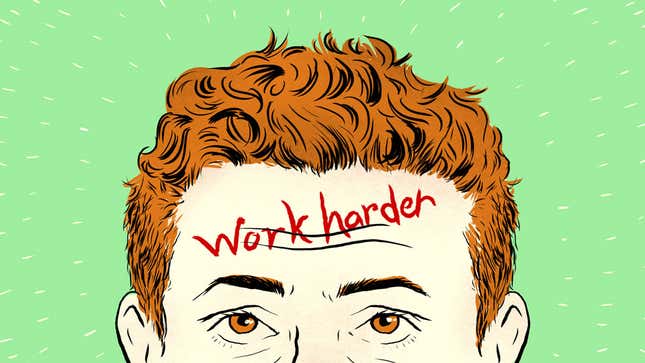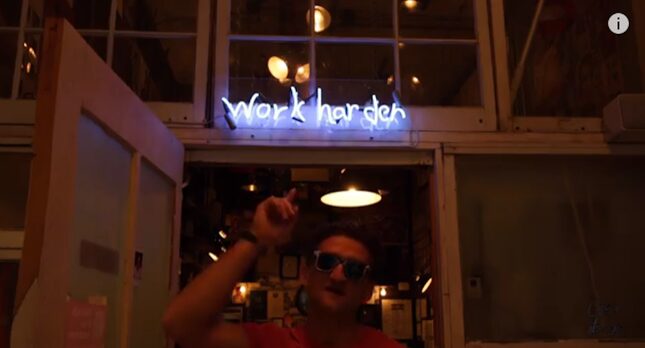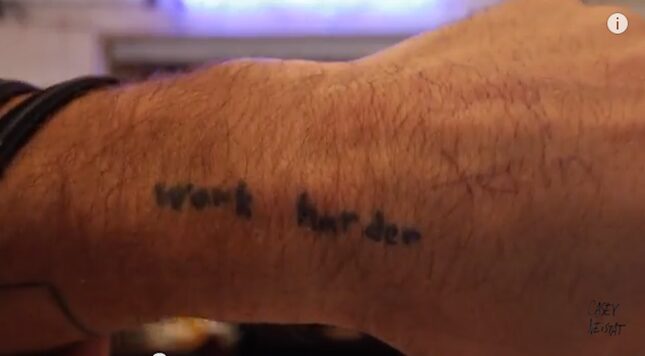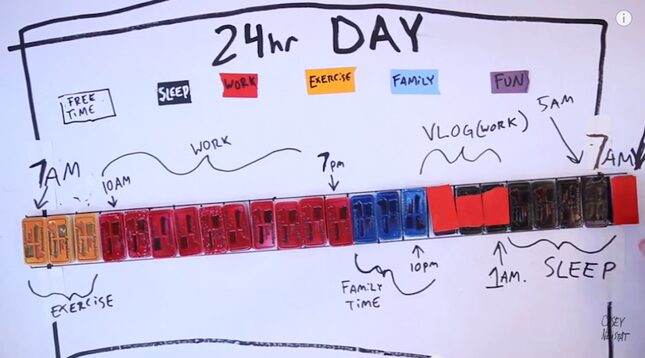Here Is What a Hard-Working, Overachieving Person’s Day Looks Like
Latest

My day is practically an art form at this point. I’ve manipulated all the relevant factors to the exact desired ratios, while keeping them just flexible enough to be changed up for variety’s sake. This is on purpose: As someone who has battled boredom since birth, I learned how important it was to build in escape routes from the daunting prospect of an entirely open day, because I knew what I’d be like if I had nothing but unstructured time: miserable.
To be clear, I absolutely need some unstructured time, though. And a little goes a long way. I think unstructured time, like unstructured play for kids, is critical to let the mind wander, to let ideas marinate, to let epiphanies happen, to get creative, to let shit meander up in your brain bank, if you’ll forgive the visual. This is how good thoughts happen, how bad ideas reconfigure into good ones, and it’s also how most people decompress, regroup, or whatever your favored term is for sitting around doing nothing for long enough to feel like you could maybe start doing something again, only this time, refreshed.
Or is free time is the enemy of progress? So says Casey Neistat, one of those hard working overachieving type people who loves what they do and loves every minute of doing it and is super successful and so who probably has everything all figured out. Who would you rather listen to? My money’s on him. I have less of it though. Definitely ask him who his money is on and go with that.
Neistat is a director/vlogger/triathlete who exposed the iPod’s irreplaceable battery life (18 months) back in 2003, takes mischievous approaches to ads for brands like Nike and others, and who is otherwise a relentlessly prolific doer. In a recent vlog he spoke about how incomprehensible boredom is to someone like him, which kills me because that is exactly what I would expect someone who was really prolific and successful to say.
Neistat explains in his opening that he has his Snapchat account set so that anyone can send him snaps. He laments:The snaps that I get the most are from people and it just says “bored.” Or it’s like a selfie of them and they’re like, ‘Bored. Nothing to do.’ How do this many people have all this time and no way to occupy it? You could build a city with all the free time that people spend sitting around being bored sending me snaps of themselves sitting around being bored.
Well, I mean, or you could hang out on Snapchat? Chillin’? That’s cool too, right?
So Neistat gets into his pretty fascinating philosophy about time management. First off, this neon sign hangs above his office door:

In case he forgets his mantra, he also has it tattooed on his wrist.

He explains his philosophy on productivity, which is basically to never “waste” time: “Seneca said ‘It’s not that we have a short time to live, it’s that we waste a lot of it.’ … Right now it’s go-time for me. I want to maximize every waking second.”
-

-

-

-

-

-

-

-

-

-

-

-

-

-

-

-

-

-

-

-

-

-

-

-

-

-

-

-

-

-

-

-

-

-

-

-

-

-

-

-









































